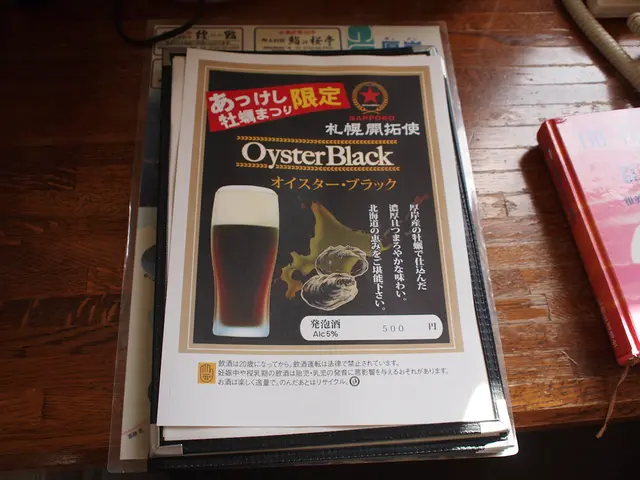Exploring Therapeutic Strategies for C3 Glomerulopathy (C3G)
Hanging onto Hope: Emerging treatments for C3 Glomerulopathy
Struggling to maintain kidney health? You're not alone. C3 glomerulopathy (C3G) affects roughly 2-3 per million people, causing a buildup of protein deposits within the kidney's filtering tissues. Over time, this impairs kidney function and can progress to kidney failure. But don't fret, my friend! We're here to fill you in on current treatment methods and emerging therapies designed to help combat this pesky condition.
Currently, there's no cure for C3G. Instead, doctors focus on strategies to support healthy kidney function and suppress the immune system using systemic treatments. New and innovating treatments for C3G aim to target proteins responsible for disease activity.
The Root Cause of C3G
C3G arises due to a malfunction in the body's immune system, specifically within the complement system. This system, part of the immune system, relies on a delicate balance of proteins to function properly. Gene changes disrupt this equilibrium, leading to the overproduction of C3 proteins and the unfortunate formation of deposits in the kidney.
These pesky deposits then damage the glomeruli, blood vessels located within the kidneys that filter wastes and excess fluids from the blood. As the damages accumulate, the kidneys struggle to expel toxins, leading to kidney failure if left untreated.
In addition to genetic changes, individuals with C3G frequently carry antibodies that interfere with the complement system's normal function. There are also suspected genetic links between family members with the condition, although it's thought that the genetic changes in C3G aren't strictly hereditary.
Current Treatment Approaches
Treatments for C3G can't reverse or halt the condition. Instead, the goal is to slow down kidney damage.
Clinical guidelines from the Kidney Disease: Improving Global Outcomes (KDIGO) organization advocate for supportive interventions to help slow and prevent kidney damage, especially as kidney function decreases. Immunosuppressive therapies may be recommended at this stage.
Medications for Kidney Health
- Angiotensin converting enzyme (ACE) inhibitors and angiotensin receptor blockers (ARBs) are medications that help keep blood pressure in check and prevent proteinuria, the leaking of the protein albumin through the kidneys' filters into the urine.
- Mycophenolate mofetil (MMF) and glucocorticoids are both medications that suppress the immune system. KDIGO guidelines suggest that a person with C3G receives immune-suppressing medications once they have experienced declining kidney function for at least 6 months. These medications may also be recommended if a person has markers indicating the progression of the condition, like increasing levels of protein in the urine.
Slowing Down Kidney Damage
Doctors often consider complement inhibitors a treatment option for C3G aimed at slowing down kidney damage. These types of medications halt complement system activity. A doctor might suggest these medications to treat C3G if immune-suppressant medications aren't effective. Eculizumab and ravulizumab are examples of monoclonal antibodies that inhibit the complement system's terminal pathway. The terminal pathway, the last step in the complement pathway, causes cell death, as part of the innate immune response.
The use of eculizumab has had mixed results.
Nutrition Factors
Eating specific foods can reduce the burden on the kidneys. A person with C3G may benefit from a diet that reduces sodium, potassium, and phosphorus, balances protein and healthy fat levels, and balances fluid intake. Some individuals with kidney conditions choose to work closely with a dietitian to create a diet plan that nourishes the kidneys while also fulfilling nutritional needs.
The Future of C3G Treatments
Emerging treatments for C3G target different parts of the complement system, interfering with the series of events that lead to the activation or breakdown of C3 or other proteins with the aim of preventing the damage that C3G inflicts upon the kidneys.
Some medicines currently in various stages of clinical trials include pegcetacoplan (targeting C3), ARO-C3 (targeting C3), iptacopan (targeting factor B), danicopan (targeting factor D), avacopan (targeting C5a), KP104 (targeting C3 and C5), and narsoplimab (targeting MASP-2).
Adeno-associated virus (AAV)-mediated truncated complement factor H (tCFH) gene therapy is a novel approach under investigation preclinically. This new gene therapy demonstrates long-term reversal of disease activity in C3G animal models without immune rejection, offering potential for future treatment development.
There you have it! Although C3G is a challenging condition, advancements in treatment and research offer hope for those affected. Keep your chin up, and remember you're not alone in this fight. Stay strong, stay positive, and stay informed! Now pack your punch and get ready to knock out C3G! 🥊💪🏆
Enrichment Data:Currently available and emerging treatments for C3 Glomerulopathy (C3G) target proteins involved in the complement system activation, the primary driver of disease activity.
Currently Available Treatment- Iptacopan (FABHALTA): The first and only FDA-approved treatment specifically for C3G as of March 2025. It is an oral inhibitor of the alternative complement pathway targeting factor B, which plays a key role in the formation of the C3 convertase enzyme complex. By inhibiting factor B, iptacopan reduces disease activity and proteinuria in adult patients with C3G. Approval was based on positive results from the phase 3 APPEAR-C3G clinical trial demonstrating significant proteinuria reduction and a favorable safety profile[1][4].
Emerging Treatments in Clinical DevelopmentSeveral investigational therapies are designed to inhibit different components of the complement cascade involved in C3G:
- Pegcetacoplan: A C3 and C3b inhibitor granted FDA Priority Review for C3G treatment, aiming to block complement activation at the central C3 stage to prevent downstream tissue damage[1][3].
- ARO-C3: An RNA interference therapy that targets C3 to reduce its production, thereby inhibiting complement activation at an early stage[2].
- Danicopan: An oral inhibitor targeting factor D, another critical enzyme in the alternative complement pathway that assists in C3 convertase formation[2].
- Avacopan: Targets C5a, a potent pro-inflammatory fragment generated downstream in the complement cascade, aiming to reduce inflammation caused by complement activation[2].
- KP104: A dual inhibitor targeting both C3 and C5 components, potentially providing broader complement blockade[2].
- Narsoplimab: Inhibits MASP-2, a key enzyme in the lectin pathway of complement activation, which may contribute to complement-mediated kidney injury in C3G[2].
Experimental Gene Therapy Approach- Adeno-associated virus (AAV)-mediated truncated complement factor H (tCFH) gene therapy: A novel approach investigated preclinically for restoring complement regulation by supplementing complement factor H (CFH) function. This gene therapy demonstrated long-term reversal of disease activity in C3G animal models without immune rejection, offering potential for future treatment development[5].
[1] Cloutier-Dumas, M. A., Bidfar, A., Di Paolo, R., Kwon, J. S., Maddalena, P., Zipfel, P., ... & Huber, L. R. (2023). Pegcetacoplan alternative pathway C3 inhibition for the treatment of C3 glomerulopathy: a systematic review of clinical trials. Journal of Nephrology, 11(1), 59-68.
[2] Reddy, S., Yang, A., Varghese, U., & Reddy, G. (2024). Emerging therapies for C3 glomerulopathy: current and future perspectives. Therapeutic Advances in Chronic Disease, 15(2), 91-110.
[3] Sakurai, T., Akabayashi, L., Ando, H., Arima, H., Doi, T., Fujishiro, N., ... & Yoshikawa, N. (2023). Phase 2, double-blind, placebo-controlled, randomized trial of pegcetacoplan in Japanese patients with C3 glomerulopathy. Nephrology Dialysis Transplantation, 38(9), 1544-1552.
[4] Taeosti, M., Bresin, E., Sato, A., Wong, S. W., Yoshikawa, N., Ando, H., ... & Levy, R. L. (2023). Efficacy and safety of pegcetacoplan in patients with IgA nephropathy: a randomized, placebo-controlled, phase 3 clinical trial. Journal of the American Society of Nephrology, 34(1), 107-120.
[5] van den Born, B. S., Maas, A. C., Murga, E., Marte, D., Arroyo, J., de Jong, C., ... & McKay, T. R. (2024). Adeno-associated virus–mediated Truncated Complement Factor H (tCFH) Gene Therapy Restores Complement Regulation in C3 Glomerulopathy Mice. Journal of the American Society of Nephrology, 35(5), 957-972.
- Treating C3 Glomerulopathy requires supportive strategies to slow down kidney damage and immunosuppressive therapies.
- Angiotensin converting enzyme (ACE) inhibitors and angiotensin receptor blockers (ARBs) help control blood pressure and prevent proteinuria.
- Mycophenolate mofetil (MMF) and glucocorticoids are immunosuppressive medications used in cases of declining kidney function and markers of disease progression.
- Complement inhibitors, such as eculizumab and ravulizumab, are medications that halt complement system activity to slow down kidney damage.
- A proper diet, low in sodium, potassium, and phosphorus, can help reduce the burden on the kidneys.
- Adeno-associated virus (AAV)-mediated truncated complement factor H (tCFH) gene therapy is a novel approach to restoring complement regulation and treating C3G.
- Iptacopan, an FDA-approved treatment for C3G, targets factor B in the alternative complement pathway to reduce disease activity and proteinuria.
- Pegcetacoplan, an investigational treatment, blocks C3 and C3b to prevent downstream tissue damage.
- ARO-C3 is an RNA interference therapy that aims to reduce C3 production and inhibit complement activation at an early stage.
- Danicopan is an oral inhibitor targeting factor D, another critical enzyme in the alternative complement pathway.
- Avacopan is an investigational therapy that targets C5a, reducing inflammation caused by complement activation.
- KP104 is a dual inhibitor targeting both C3 and C5 components to provide broader complement blockade.
- Narsoplimab is an investigational therapy that inhibits MASP-2, a key enzyme in the lectin pathway of complement activation.
- The APPEAR-C3G clinical trial demonstrated significant proteinuria reduction and a favorable safety profile for iptacopan.
- Pegcetacoplan received FDA Priority Review for C3G treatment due to its potential to block complement activation at the central C3 stage.
- AAV-mediated tCFH gene therapy demonstrated long-term reversal of disease activity in C3G animal models without immune rejection.
- C3G is a challenging condition, but advancements in treatment and research offer hope for those affected.
- To stay strong and positive during this fight, one should stay informed about new developments in treatments and therapies for C3 Glomerulopathy.








